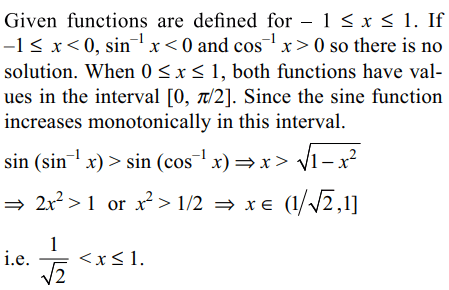1. \[\sin^{-1}6x+\sin^{-1}6\sqrt{3}x=-\pi/2\]
if x is
equal to
a) -1/12
b) 1/6
c) 1/12
d) -1/6
Explanation: The given equation can be written as
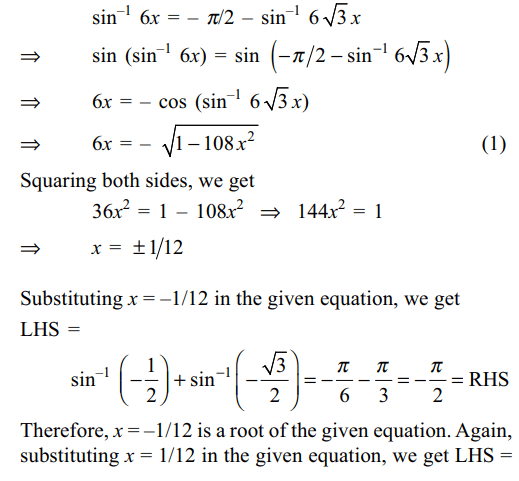

2. If \[A=\tan^{-1}\left(1/7\right)\] and \[B=\tan^{-1}\left(1/3\right),\]
then
a) \[\cos2A=24/25\]
b) \[\cos2B=4/5\]
c) \[\cos2A=\sin 4B\]
d) All of the Above
Explanation:

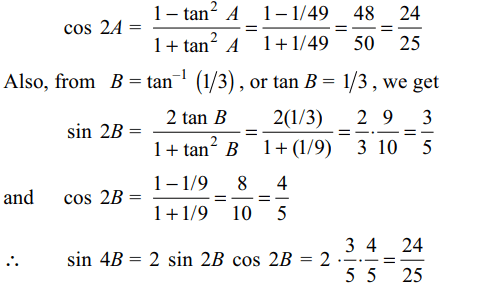
3. \[\cos^{-1}x\] is equal to
a) \[2\sin^{-1}\sqrt{\frac{1-x}{2}}\]
b) \[2\cos^{-1}\sqrt{\frac{1-x}{2}}\]
c) \[2\cos^{-1}\sqrt{\frac{1+x}{2}}\]
d) Both a and c
Explanation: Let cos–1 x = y, so that x = cos y. Then
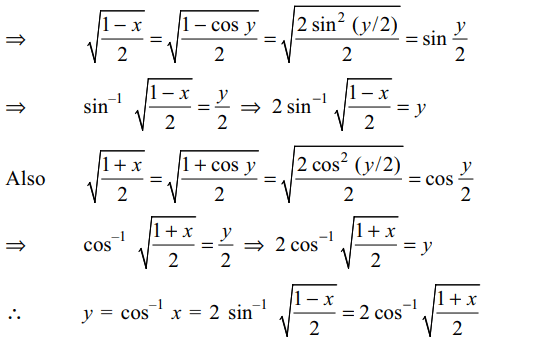
4. If \[\sin\left[2\cos^{-1}\left\{\cot\left(2\tan^{-1}x\right)\right\}\right]=0,x>0\]
then
a) x = 1
b) \[x=\sqrt{2}+1\]
c) \[x=\sqrt{2}-1\]
d) All of the Above
Explanation: The given equation can be written as
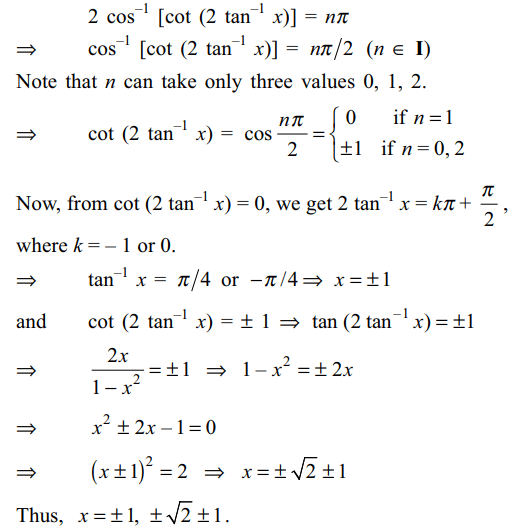
5. Number of solutions of the equation \[\left(\tan^{-1}x\right)^{2}+\left(\cot^{-1}x\right)^{2}=\frac{5\pi^{2}}{8}\]
is
a) 0
b) 1
c) 2
d) 3
Explanation:
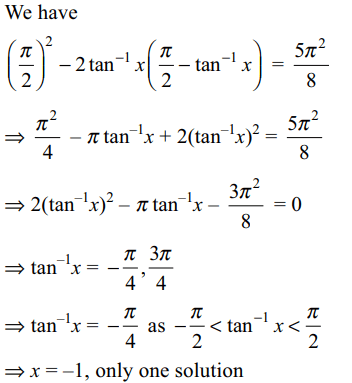
6. If \[\sin^{-1}\frac{2a}{1+a^{2}}+\sin^{-1}\frac{2b}{1+b^{2}}=2\tan^{-1}x\]
then x=
a) \[\frac{a-b}{1+ab}\]
b) \[\frac{a+b}{1-ab}\]
c) \[\frac{a-b}{1-ab}\]
d) \[\frac{a+b}{1+ab}\]
Explanation:
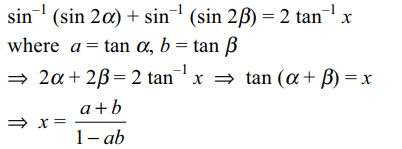
7. If \[y=2\tan^{-1}x+\sin^{-1}\frac{2x}{1+x^{2}}\] then
a) \[-\pi/2< y<\pi/2\]
b) \[-3\pi/2< y< 3\pi/2\]
c) \[-\pi< y<\pi\]
d) \[-\pi/4< y< \pi/4\]
Explanation:


8. If \[0<\sin^{-1}x< 1\] and \[1+\sin^{-1}x+\left(\sin^{-1}x\right)^{2}+....\]
upto infinity =2 then x is equal to
a) \[\pi/6\]
b) \[\pi/4\]
c) \[\pi/3\]
d) none of these
Explanation:

9. If \[\cos^{-1}\frac{p}{a}+\cos^{-1}\frac{q}{b}=\alpha\]
then \[\frac{p^{2}}{a^{2}}-\frac{2pq}{ab}\cos\alpha+\frac{q^{2}}{b^{2}}\]
is equal to
a) \[\sin^{2}\alpha\]
b) \[\cos^{2}\alpha\]
c) \[\tan^{2}\alpha\]
d) \[\cot^{2}\alpha\]
Explanation:
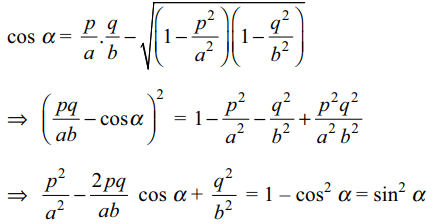
10. The inequality \[\sin^{-1}x>\cos^{-1}x\] holds for
a) all values of x
b) \[x\epsilon\left(0,1/\sqrt{2}\right)\]
c) \[x\epsilon\left(1/\sqrt{2},1\right)\]
d) no value of x
Explanation:
